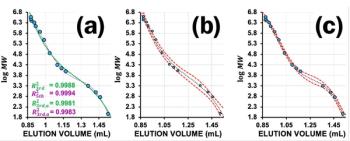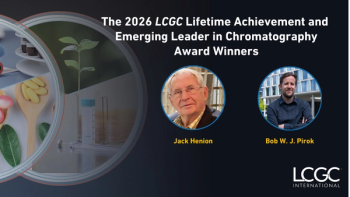
Livia Schiavinato Eberlin is Pittsburgh Conference Achievement Award Winner
Livia Schiavinato Eberlin of the University of Texas at Austin has won the 2020 Pittsburgh Conference Achievement Award. The award, given by the Society for Analytical Chemists of Pittsburgh, recognizes individuals for outstanding achievements in the fields of analytical chemistry and applied spectroscopy within 10 years after completion of their PhD work.
Livia Schiavinato Eberlin of the University of Texas at Austin has won the 2020 Pittsburgh Conference Achievement Award. The award, given by the Society for Analytical Chemists of Pittsburgh, recognizes individuals for outstanding achievements in the fields of analytical chemistry and applied spectroscopy within 10 years after completion of their PhD work.
As an undergraduate at the Thomson Laboratory of the State University of Campinas (UNICAMP) in Brazil, Eberlin visited the Aston Laboratory at Purdue University to also pursue undergraduate research in mass spectrometry (MS). She received her B.S. in Chemistry from UNICAMP in 2007. Following that, she started a PhD program in analytical chemistry at Purdue under the mentorship of Prof. R. Graham Cooks. During this time, Eberlin developed and applied ambient ionization MS imaging to human cancer diagnosis.
In recognition of her work, Eberlin has received many awards, including the Nobel Laureate Signature Award from the American Chemical Society. She started postdoctoral work at Stanford University in 2012 under the guidance of Prof. Richard N. Zare, where she continued to develop MS technology for biomedical research. During that time, she received the L’Oréal for Women in Science Fellowship, a K99 pathway to independence award from the National Institutes of Health and the National Cancer Institute (NIH/NCI), and was listed in the Forbes 30 under 30 list in Science and Healthcare.
Eberlin started her independent career as an Assistant Professor in the Chemistry Department at the University of Texas at Austin in 2016. Since then, she and her group have received several recognitions for their research. In 2018, Eberlin was named a Sloan Research Fellow, a Moore Inventor Fellow, and a MacArthur Fellow.
Newsletter
Join the global community of analytical scientists who trust LCGC for insights on the latest techniques, trends, and expert solutions in chromatography.




